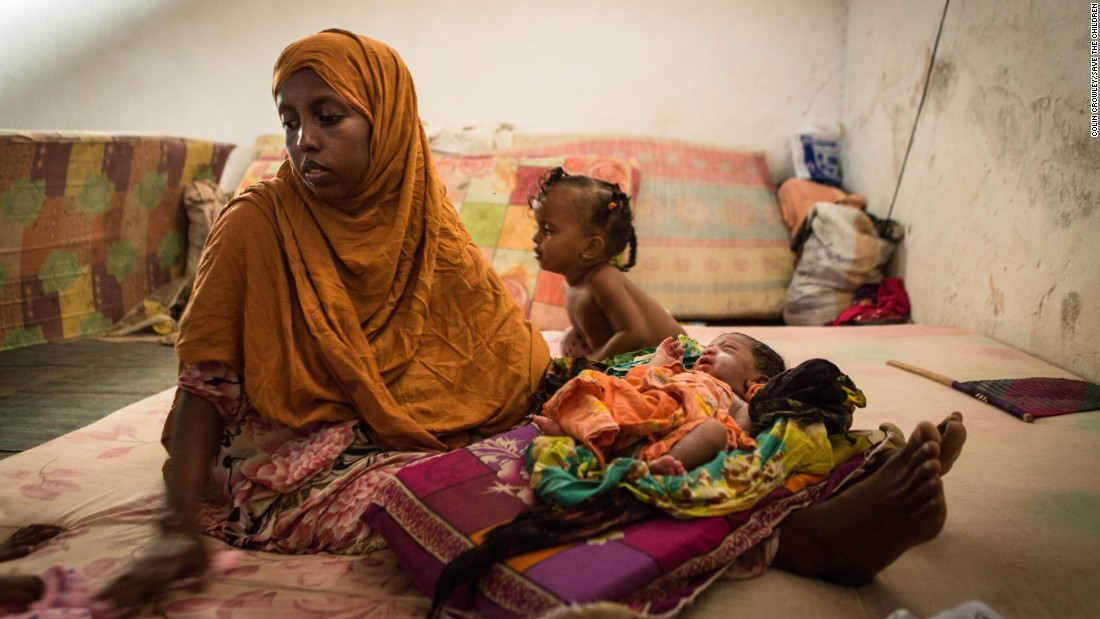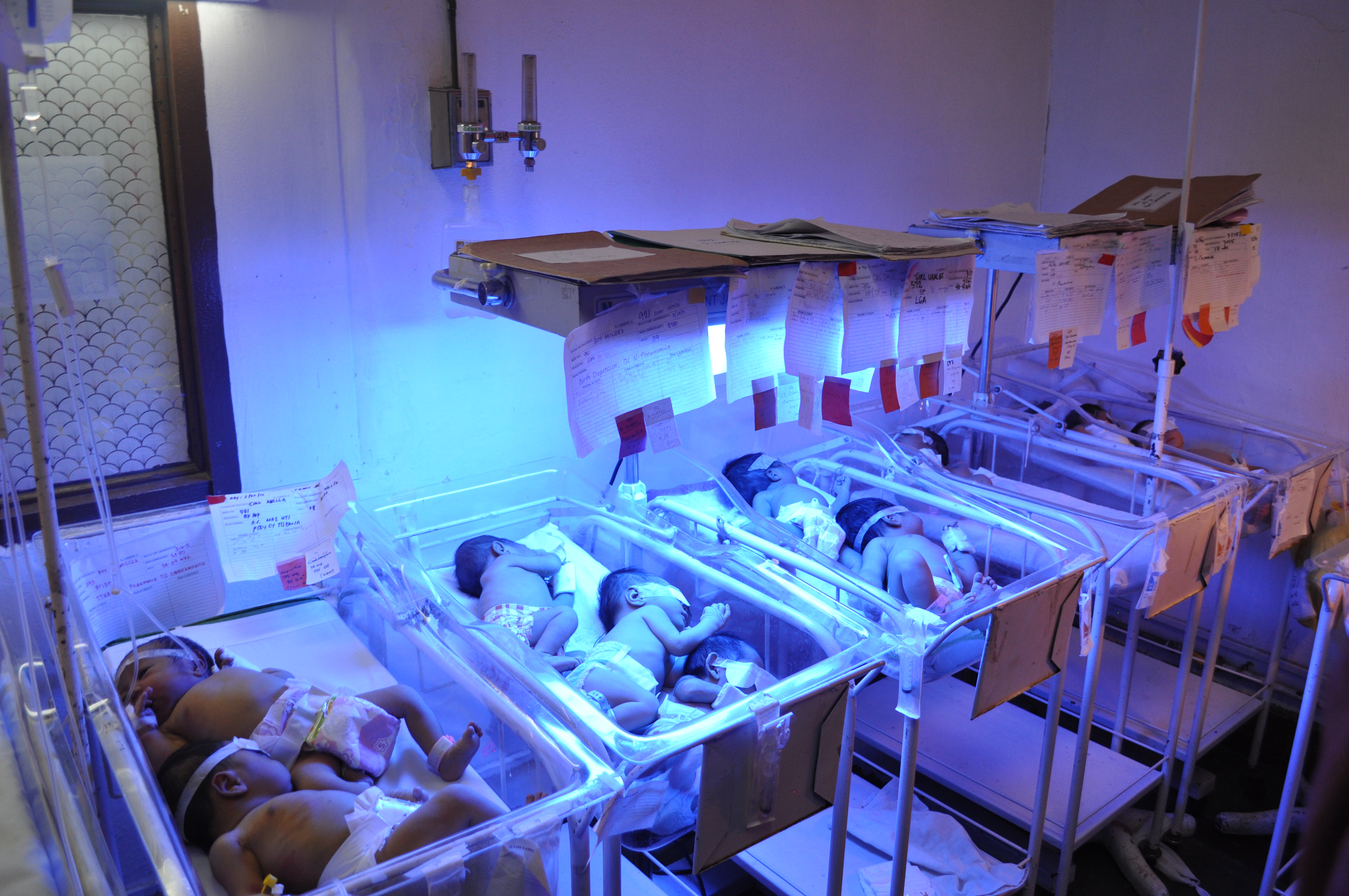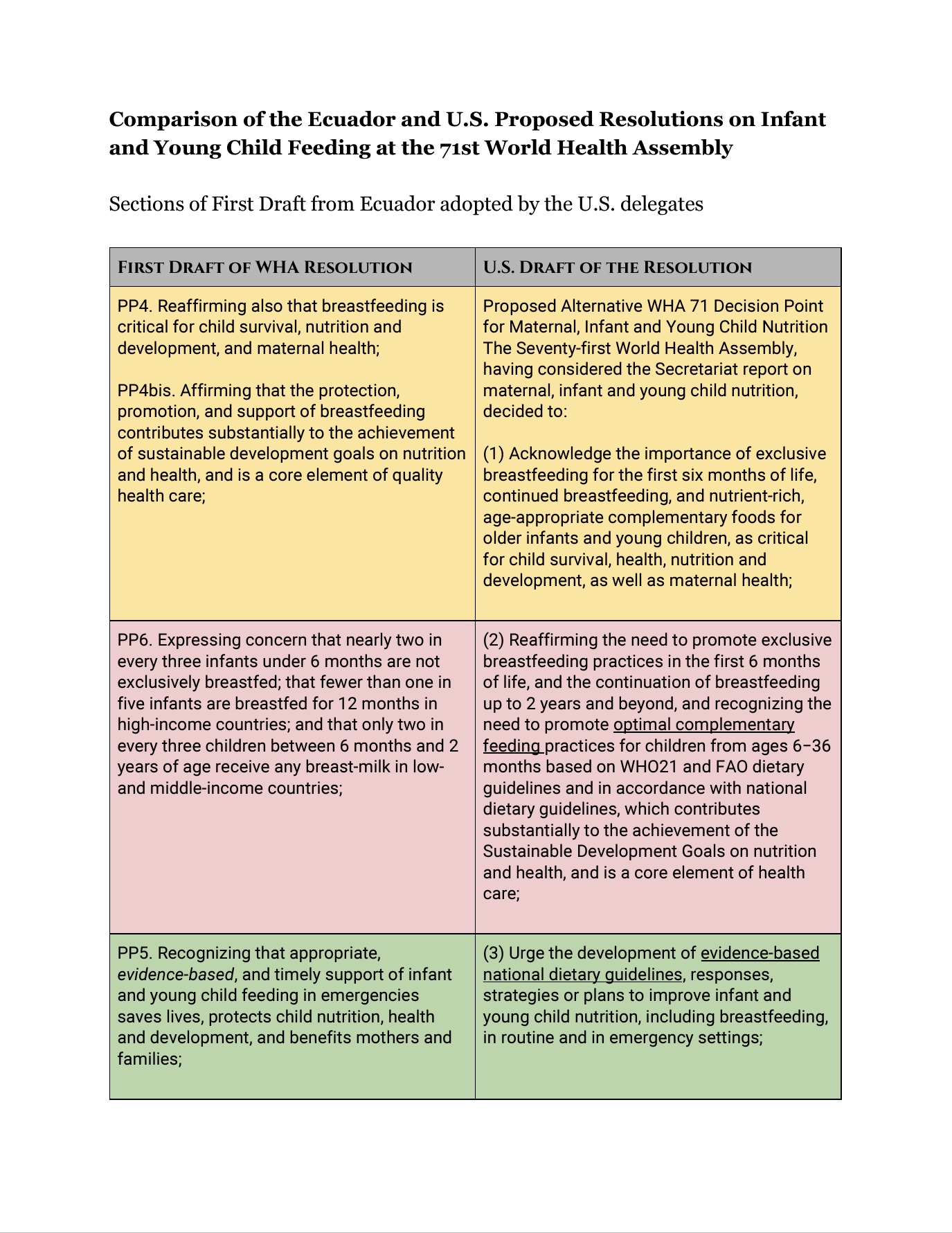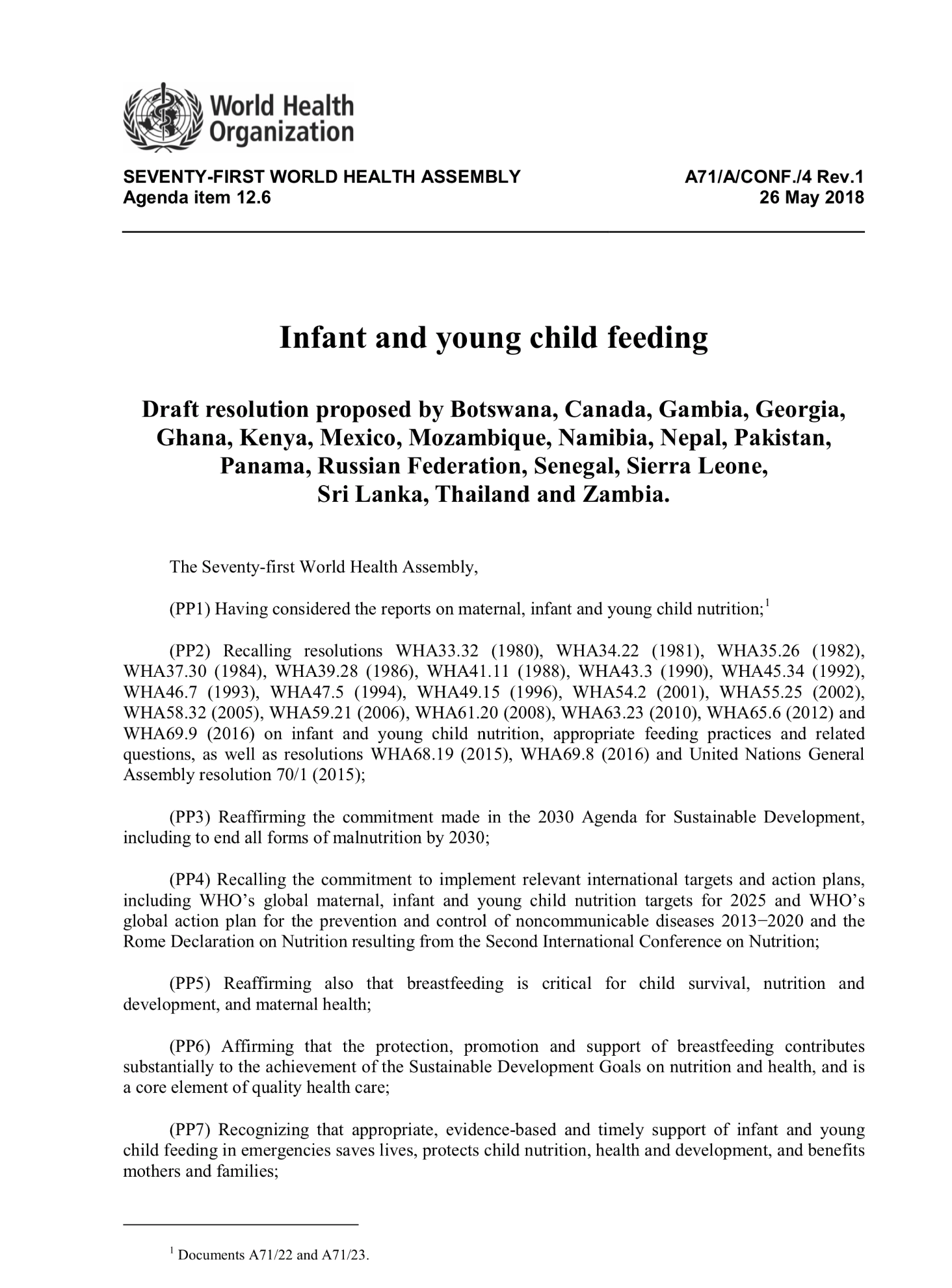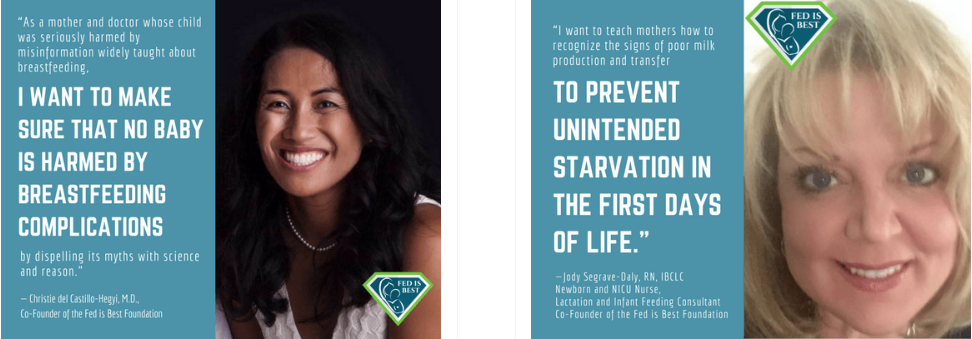Jody Segrave-Daly, RN, IBCLC and Christie del Castillo-Hegyi, M.D.
The Fed is Best Foundation is dedicated to ensuring safe infant feeding for every single child, a goal that can be achieved with exclusive breastfeeding, combination feeding, exclusive formula feeding and tube-feeding. We have no political affiliation. We support all mothers to help their infant thrive with safe, sufficient and sustainable feeding in order to protect their health and optimize brain development. Recent news has broken about the U.S. delegation at the 71st World Health Assembly opposing the first draft of the Infant and Young Child Feeding resolution. We have provided a line-by-line break down of the first draft of the resolution, which was set to be proposed by delegates from Ecuador, as well as the proposed draft submitted by the U.S. delegation along with our interpretation of the lines that the U.S. delegates opposed.
In an editorial published in the New York Post, two pediatricians, Dr. Alma Golden and Dr. Brett Giroir, who were key members of the U.S. delegation attending the 71st World Health Assembly, wrote about the rationale for the U.S. opposition of the first draft:
As pediatricians, US representatives at this year’s World Health Assembly in Geneva and supporters of breastfeeding throughout our professional careers, we were shocked to read recent headlines, in the New York Times and elsewhere, claiming that the administration has somehow called into question the importance of breastfeeding for infants.
The administration fully endorses breastfeeding, and the agencies where we work — Health and Human Services and USAID — communicate this unequivocally…We don’t just affirm these priorities in formal conference rooms in Geneva. For years, the US government…has invested millions of dollars to promote breastfeeding both at home and abroad.
All of which is to say: Breastfeeding wasn’t in dispute in Geneva. Rather, we raised objections to an early draft of the resolution we eventually supported, which made references to a controversial 2016 guidance document. The underlying policy goal of this guidance is unsupported by US nutrition guidelines and inconsistent with the practice of most families in our country…
In particular, the guidance recommends that countries impose stringent new regulations on the marketing of any commercially produced foods suggested for children between 6 months and 3 years old. Such restrictions, in our view, prevent parents from having access to all the factual information they might need. The guidance even advocates for the prohibition of free samples of formula — including in countries and conflict zones where supplies of formula could help save babies’ lives.
Most important, there are good and valid reasons, both medical and personal, why some mothers cannot breastfeed, or choose not to breastfeed exclusively. This is particularly true in situations where displacement, other trauma or malnutrition have made it impossible for mothers to breastfeed their children, and these babies’ lives are at risk without formula or other nutritional supplementation. Parents in these dire situations need all the information and choices available.
The issue of child malnutrition occurring in war torn countries has been reported on by CNN reporter Gayle Lemmon in her article, “Don’t make babies rely on breast milk in war zones,” where she interviewed members of Doctors Without Borders who reported taking care of many infants suffering from severe malnutrition as a result of the strict restrictions of the World Health Organization and UNICEF on formula donations.
‘Over the past couple of weeks we’ve seen an increase in the number of malnourished children needing treatment,” Doctors Without Borders’ Iraq country director Manuel Lannaud said in an interview released on the group’s Web site.
The surprising thing is that Lannaud and his colleagues at the humanitarian aid group didn’t place the blame for these underfed little ones just on war and the fact that the city was under siege. They also put the blame on other international organizations and policies that seek to do good.
“It isn’t a problem of access to food. The malnutrition we see here is primarily due to the scarcity of infant formula,” Lannaud wrote. “International organizations like UNICEF and the World Health Organization (WHO) promote breastfeeding … and provide infant formula, but only by prescription. We believe that distributing infant formula in a conflict situation like Iraq is the only way to avoid children having to be hospitalized for malnutrition.”
Doctors Without Borders says it agrees that breastfeeding promotion is a priority, but one that comes after dealing with the immediate crisis of a baby’s survival. Says Lannaud, if mothers “need formula, we give it to them.”
The mothers who need it are those facing down life-and-death situations each day, often while caring for multiple children in the shadow of war. That giving infant formula to them is so controversial speaks to a policy tripwire few outside the humanitarian realm even know exists: global “breastfeeding first” policies.
The WHO breastfeeding policies are not without flaws and aggressive promotion of exclusive breastfeeding has resulted in harm, namely an epidemic of newborn hospitalizations for jaundice, dehydration and hypoglycemia, known causes of brain injury and developmental disability, in the U.S. and across the globe. In addition, there has been a rise in accidental suffocation of newborns, called Sudden Unexpected Postnatal Collapse, from prone positioning during to skin-to-skin care and breastfeeding, made worse by maternal exhaustion from 24/7 rooming-in, practices encouraged but the WHO Ten Steps and by Baby-Friendly policies. The promotion of exclusive breastfeeding from birth has contributed to an epidemic of neonatal jaundice in the developed and developing world, which has contributed to an epidemic of perinatal brain injury and cerebral palsy particularly in the developing world, where few health care resources are available to monitor and treat exclusive breastfeeding complications. Promoting exclusive breastfeeding from birth over the local, traditional practices of supplemented breastfeeding (with wet nursing, animal milk or sugar water) until the onset of copious milk production has discouraged a practice that breastfeeding mothers used to prevent hunger and starvation-related complications like jaundice, dehydration and hypoglycemia, which now are the leading causes of newborn rehospitalization in the world.
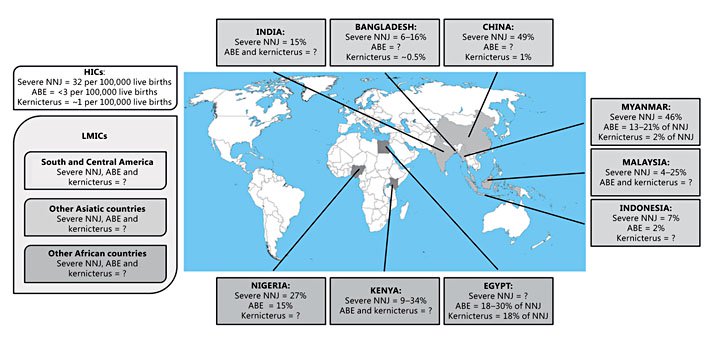
Incidence of severe neonatal jaundice (bilirubin ≥ 20 mg/dL) in Low- and Middle-Income countries. The data reported correspond to hospital statistics. [Greco, et al, Neonatology 2016;110:172-180]
From reports we have read about regarding the events of the World Health Assembly and our analysis of the documents, the U.S. delegates did not oppose the resolution, but they opposed lines of the resolution. Specifically they did not endorse the following lines of the first draft:
- Standardization of infant feeding targets according to WHO global targets instead of country-specific targets
- Increasing the target of exclusive breastfeeding at 6 months to 50% mobilizing financial resources and regulatory interventions to support WHO programs like the BFHI, a policy which has increased newborn readmissions across the globe for brain-threatening complications of insufficient feeding, namely jaundice, dehydration and hypoglycemia.
- Reinvigoration of the WHO “Baby-friendly Hospital Initiative (BFHI)…by promoting full integration of the Ten Steps to Successful Breastfeeding,” which is associated with the leading causes of newborn readmission in the U.S. and has resulted in preventable disability and death of newborns through inadvertent starvation and suffocation from skin-to-skin.
- Implementation and monitoring of laws, policies and programs aimed at protection, promotion, and support of breastfeeding only, with no mention of support for combination or formula-feeding families.
- Strengthening national monitoring and enforcement and mobilizing financial resources to enforce the International Code of Marketing of Breast-milk Substitutes
- Endorsing the WHO guidelines for complementary feeding of breastfed children, written in 2001, which have outdated data on rates of insufficient lactation and micronutrient deficiencies in exclusively breastfed newborns including iron, vitamin D and zinc.
In summary, the items included in the first draft of the resolution, with exception of the International Code of Marketing of Breast-milk Substitutes, were aimed at increasing the influence of WHO programs by increasing financial support and legal regulations to promote exclusive breastfeeding rates. These policies are not benign as they have had the unintended consequence in increasing newborn feeding complications, perinatal brain injury and developmental disability across the globe.

Provided by Hanna Awadzi, pictured in photo. Ms. Awadzi is a professional journalist from Ghana whose first-born daughter Avery suffered from severe starvation-related jaundice and hypoglycemia while exclusively breastfeeding with insufficient milk. Avery subsequently developed cerebral palsy. Bilirubin toxicity and hypoglycemia are known causes of brain injury and cerebral palsy.
HHS national spokesperson Caitlin Oakley released the following statement to Motherly, “Recent reporting attempts to portray the U.S. position at the recent World Health Assembly as ‘anti-breastfeeding’ are patently false.” Oakley continues:
“The United States has a long history of supporting mothers and breastfeeding around the world and is the largest bilateral donor of such foreign assistance programs. The issues being debated were not about whether one supports breastfeeding. The United States was fighting to protect women’s abilities to make the best choices for the nutrition of their babies. Many women are not able to breastfeed for a variety of reasons, these women should not be stigmatized; they should be equally supported with information and access to alternatives for the health of themselves and their babies.”
We agree with this statement and so do millions of mothers and health professionals across the globe. The promotion and support of only one type of feeding has resulted in infant harm. In the past, predatory marketing practices promoting only formula-feeding has harmed millions of babies in the developing world. Today, the World Health Organization’s aggressive promotion of exclusive breastfeeding has resulted in millions of hospitalizations for feeding complications that would have been prevented with timely and adequate supplementation. Every family and every mother-baby dyad is different and ignoring the large portions of the population who must supplement or exclusively formula feed to safely feed their infant fails to serve the ultimate goal of optimizing infant health and brain development for the population as a whole.
The Fed is Best Foundation advocates for serious reforms in breastfeeding management, policies and education currently promoted by the World Health Organization, reflected in first and passed drafts of the Infant and Young Child Resolution. We believe that breastfeeding support should be available to every mother who wishes to breastfeed and that it should ensure the safety of every single infant, which is not delivered by the current breastfeeding guidelines. Last September, we met with the top officials of the WHO, Dr. Nigel Rollins and Dr. Laurence Grummer-Strawn, discussing the high rates of complications related to the WHO Ten Steps to Successful Breastfeeding and the BFHI and their serious long-term negative neurological consequences. We asked them to publicly acknowledge the common problem of insufficient breast milk feeding and its consequences to infant brain development as it would prevent millions of cases infant feeding complications, hospitalizations, perinatal brain injury and developmental disabilities. Yet they were unwilling to pursue such a course of action. Instead, they justified the BFHI policies saying they train every health professional to look for alert signs such as, “lethargy, convulsions and poor feeding,” late signs of newborn brain injury, to prevent such outcomes. Parents are rarely warned of these outcomes.
Below is a line item analysis of the First Draft of the Infant and Young Child Feeding resolution and the U.S. submission.
Comparison of the Ecuador and U.S. Proposed Resolutions on Infant and Young Child Feeding at the 71st World Health Assembly
Sections of First Draft from Ecuador supported by the U.S. delegates
Comparison of the Ecuador and U.S. Proposed Resolutions on Infant and Young Child Feeding at the 71st World Health Assembly
For a downloadable PDF of the above table with links to references, please go to the following link.
Passed draft of the Infant and young child feeding
Summary
We oppose the status quo of prioritizing exclusive breastfeeding over safe, sufficient and sustainable infant feeding, which is determined by maternal breast milk supply, an infant’s nutritional needs and the unique and complex social and economic realities of each family. We believe the policies and programs endorsed by the WHO and UNICEF are unsafe and unethical as they fail to disclose the serious risks associated with exclusive breastfeeding with insufficient milk, all preventable with timely and adequate supplementation. We oppose the current practice of allowing newborns to endure days of inconsolable crying, nursing and persistent hunger in Baby-Friendly mother-baby units while they wait for a mother’s full milk supply to come in. Babies whose caloric and fluid reserves are depleted before their mothers can provide sufficient milk are commonly found lethargic in hospitals and shortly after discharge, which necessitates extended or repeat hospitalization. Furthermore, those who have the most severe complications are put at increased risk of brain injury, disability and death that their mothers are rarely informed of.
As we approach our second anniversary as a non-profit organization, we are pleased with the way conversations about infant feeding have shifted away from idealizing exclusive breastfeeding and have shifted toward the more inclusive notion of safe and sufficient feeding. We hope that this is the beginning of a new dawn of infant feeding that truly prioritizes optimal delivery of nutrition to every child and support of every mother, regardless of the way she feeds.
#FedisBest

Photo Credit, Abbie Fox, Foxy Photography
There are many ways you can support the mission of the Fed is Best Foundation. Please consider contributing in the following ways:
- Join the Fed is Best Volunteer group to help us reach Obstetric Health Providers to advocate for counseling of new mothers on the importance of safe infant feeding.
- Make a donation to the Fed is Best Foundation. We are using funds from donations to cover the cost of our website, our social media ads, our printing and mailing costs to reach health providers and hospitals. We do not accept donations from breast- or formula-feeding companies and 100% of your donations go toward these operational costs. All the work of the Foundation is achieved via the pro bono and volunteer work of its supporters.
- Share the stories and the message of the Fed is Best Foundation through word-of-mouth, by posting on your social media page and by sending our resources to expectant moms that you know. Share the Fed is Best campaign letter with everyone you know.
- Write a letter to your health providers and hospitals about the Fed is Best Foundation. Write them about feeding complications your child may have experienced.
- Print out our letter to obstetric providers and mail them to your local obstetricians, midwives, family practitioners who provide obstetric care and hospitals.
- Write your local elected officials about what is happening to newborn babies in hospitals and ask for legal protection of newborn babies from underfeeding and of mother’s rights to honest informed consent on the risks of insufficient feeding of breastfed babies.
- Send us your stories. Share with us your successes, your struggles and every thing in between. Every story saves another child from experiencing the same and teaches another mom how to safely feed her baby. Every voice contributes to change.
- Send us messages of support. We work every single day to make infant feeding safe and supportive of every mother and child. Your messages of support keep us all going.
- Shop and Fed is Best Foundation will earn cash back! We hope to develop our online safe infant feeding classes with these funds.
- If you need support, we have a private support group – Join
We believe all babies deserve to be protected from hunger and thirst every single day of their life and we believe that education on Safe Infant Feeding should be free. If you would like to make a donation to support the Fed is Best Foundation’s mission to teach every parent Safe Infant Feeding, please consider making a one-time or recurring donation to our organization.
Thank you so much from the Founders of the Fed is Best Foundation!

